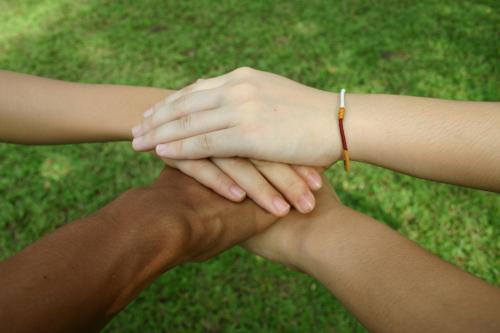
Building Sustainable Neighbourhood Communities
Friendzone is a social enterprise that seeks to enhance the social well-being of youths (aged 18-35) in Singapore through providing platforms, knowledge and skills to build social capital. Based on Friendzone’s impact evaluation, data showed that its “Animate Community” programme (hosting conversation-based neighbourhood gatherings of (30-40 pax) across 15 neighbourhoods was successful at facilitating positive relationship-building among diverse neighbourhood participants.
The platforms Friendzone provided for neighbourhood gatherings successfully increased social ties among participants and allowed for enhanced social support networks in the neighbourhoods. There were increases in levels of social engagement and a sense of trust and belonging in these neighbourhoods. All of the above factors contributed to participants’ improved social and mental well-being. Additionally, there was some evidence of increased physical activity due to increased social engagements with their neighbours. For example, across multiple neighbourhoods, running buddies and groups formed organically to support one another’s efforts in maintaining fitness.
However, some of these positive outcomes were not well-sustained over a long period of time due to the lack of continuity in the “Animate Community” programme. Neighbourhood events are one-off occurrences, and if a youth comes across Friendzone after the event has taken place, they would have missed the opportunity to connect with their neighbours as there would be a significant time lag before another upcoming Friendzone event is planned for their neighbourhood.
Friendzone thus challenged students to think critically about how to build sustainable neighbourhood communities, especially beyond the initial gathering that brings youths from the same neighbourhood together to meet for the first time.
Through this project, students were able to draw on their own experiences and encounters living in Singapore and consider not only what their own neighbourhood and youth communities looked like, but also what they hope it can become. Students collaborated with classmates residing in the same neighbourhoods to create project groups, and developed action plans to encourage other youths to increase ownership of their neighbourhoods.
Students creatively imagined new possibilities for Singapore, and some examples of students’ projects included:
- Creation of card games to equip youths with skills to connect with and care for their neighbours.
- Proposals on how to maximise the use of telebots and digital platforms such as Telegram and Discord, or explore the development of dedicated apps. These aim to facilitate youth communication and friendship-building within neighbourhoods, while thinking through how to ensure these spaces remain safe for youths.
- Proposals on activity-driven neighbourhood circles, such as networks to connect sports lovers and youth mentoring programmes through sports coaching; schemes to encourage neighbours to meet and explore local food outlets.
Importantly, these projects made students reconsider their own roles in their neighbourhood communities, and encouraged students towards an open mindset of how they themselves can build resilient communities within their own neighbourhoods.
"We're grateful for the opportunity to work with this cohort of SMU students and inspire and challenge them to think about real-world solutions towards building sustainable neighbourhood communities. The students were proactive, inquisitive, and open to feedback. It was an enjoyable experience interacting with them and hearing their ideas towards the problem statements shared."
-- Grace Ann Chua, CEO & Co-Founder, FriendzoneSG
"Beyond our regular lessons, this course has given us a unique opportunity to collaborate with an external client, Friendzone, in addressing specific challenges they face… I found the idea of addressing real-world issues for an organization far more tangible and gratifying than the traditional academic setting. Our group set out to create an application aimed at providing a safe platform for youths to connect with one another in their neighborhoods through sports. This app would facilitate the formation of friendships and sports activities among like-minded individuals. However, after a thorough review with Friendzone, we realized that our proposed solution might not be the most financially viable for a social enterprise. In an academic setting, solutions often appear feasible in theory but may not be practical in the real world. Social enterprises like Friendzone must carefully evaluate various ventures while operating within their limited resources to achieve their objectives in the most efficient and effective manner. Our collaboration with Friendzone has offered me valuable insights into how social enterprises operate and why individuals choose to work in this sector.Personally, I had never considered a career in the social service sector due to the challenges of the job and the potential lack of financial compensation. However, through interactions with Friendzone, I've gained profound respect for their dedication and the positive impact they are striving to make in society. To serve one's community is undoubtedly a commendable and courageous endeavor. Thankful for the SG50 course!"
-- Wang Qiang, Student, SMU Lee Kong Chian School of Business
"Working together with friendzone also brought up interesting topics because it was not a traditional community service project, instead it worked around an issue that is rarely discussed or widely accepted by the general public. [Before this course,] I never put much thought about how I have been interacting with my neighbors or why I should be active in my community. Because all of us rarely or never actively interacted with our neighbors, we had to think outside of the box and come up with a solution for the project that we were able to relate to ourselves."
-- Joseph Teo Jie Xian, Student, SMU School of Computing and Information Systems